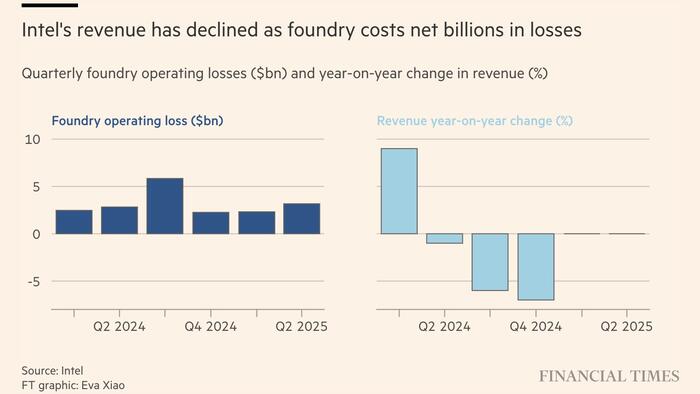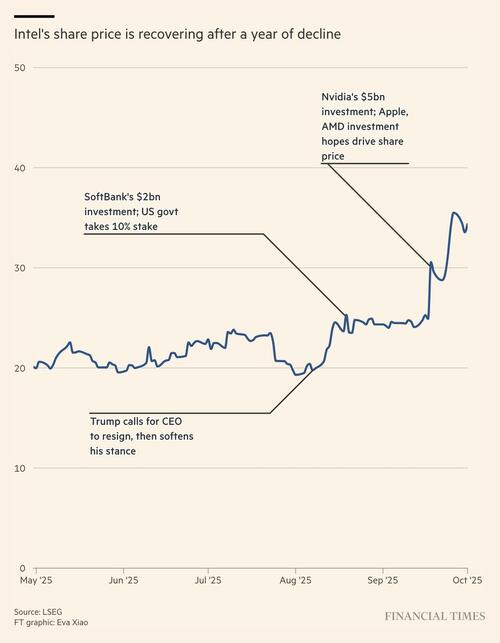


Intel has begun large-scale production at its new $32bn, 700-acre chip factory in Chandler, Arizona, betting heavily on its “18A” process to regain leadership in advanced manufacturing and challenge Taiwan’s TSMC, the FT detailed in a new writeup.
“It is the most advanced semiconductor technology in production today on planet earth,” said Kevin O’Buckley, Intel’s foundry chief, though he admitted the company still needs to “deliver trust for our customers.”
Financial Times writes that retrospective clients such as Apple, Nvidia and Qualcomm will test Intel’s chips in the next 6–8 months before deciding whether to commit. Analyst Ben Bajarin warned, “There comes a point in time where they have to make a call on whether they can do it or not.”
If the 18A process fails to impress, Intel’s multibillion-dollar gamble on US-based chipmaking could collapse.
The stakes are enormous. Building the Arizona site will consume more than half of Intel’s 2024 revenue, while its foundry division has been losing over $10bn a year. Morgan Stanley analysts note it is “hard to attribute much value to a foundry business losing over $10bn per year” while burdened with $20bn in net debt.
The US government has intervened, converting planned subsidies into equity and taking a 10% stake in Intel. That move, followed by investments from Nvidia and SoftBank, lifted Intel’s shares more than 50% in a month. “Intel went from too big to save, to too big to fail,” said Dan Hutcheson of TechInsights. Trump’s pressure on Big Tech to support domestic manufacturing could also push customers toward Intel.
Intel’s new fabs, Fab 52 and the unfinished Fab 62, symbolize both ambition and risk. Fab 52 required twice as much concrete as the Burj Khalifa, and now houses EUV lithography machines from ASML, each costing hundreds of millions.
Engineers say early “yield” issues have been fixed, and Intel will soon roll out two new chips—Panther Lake for PCs and Clearwater Forest for servers.
The company must now prove 18A works at scale to secure pre-orders for its 14A process, targeted for 2028. Without customers, Intel has warned it will abandon the technology. “If the chips are good, that’s a positive signal to start taking Intel foundry much more seriously,” said Bajarin.

